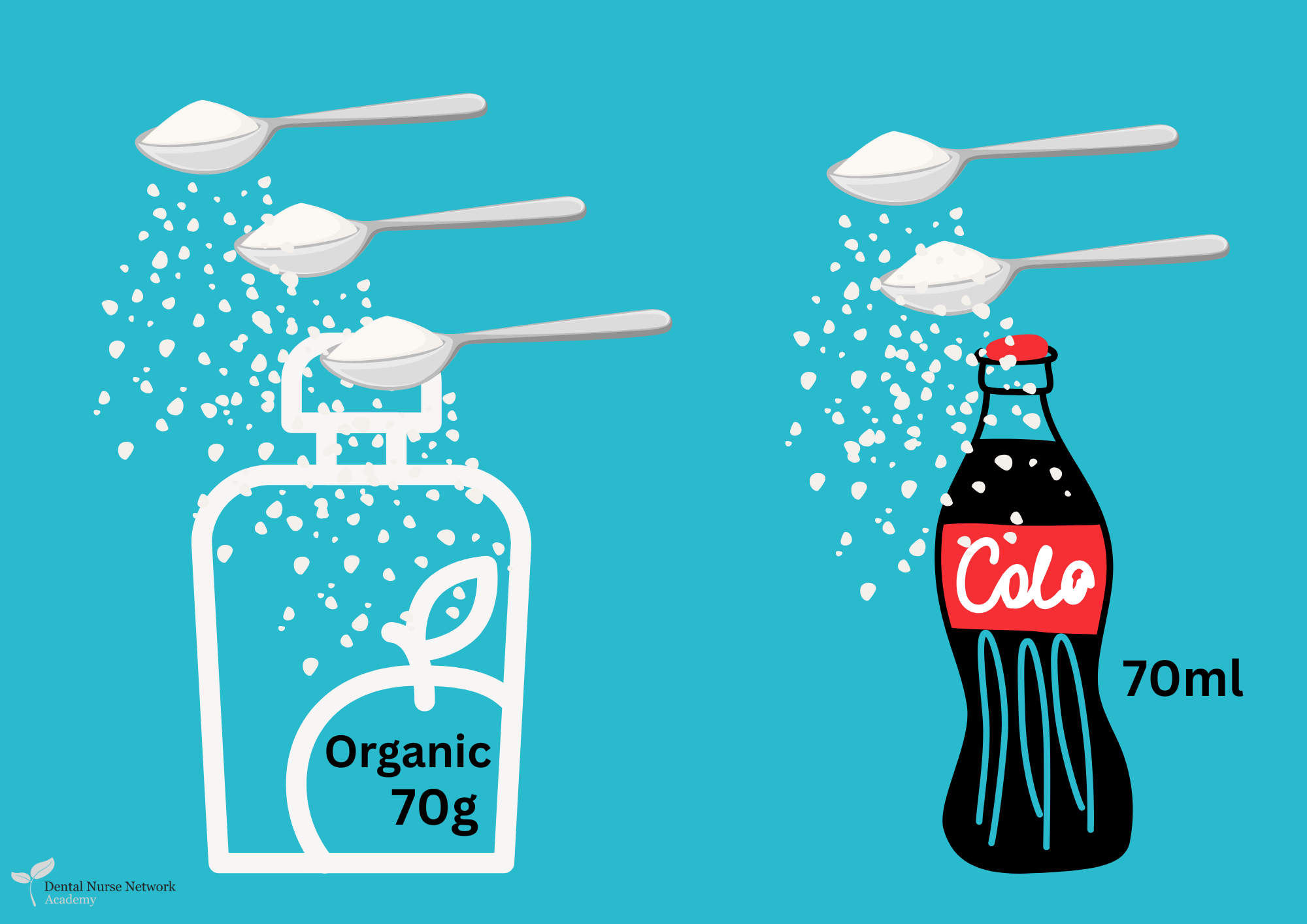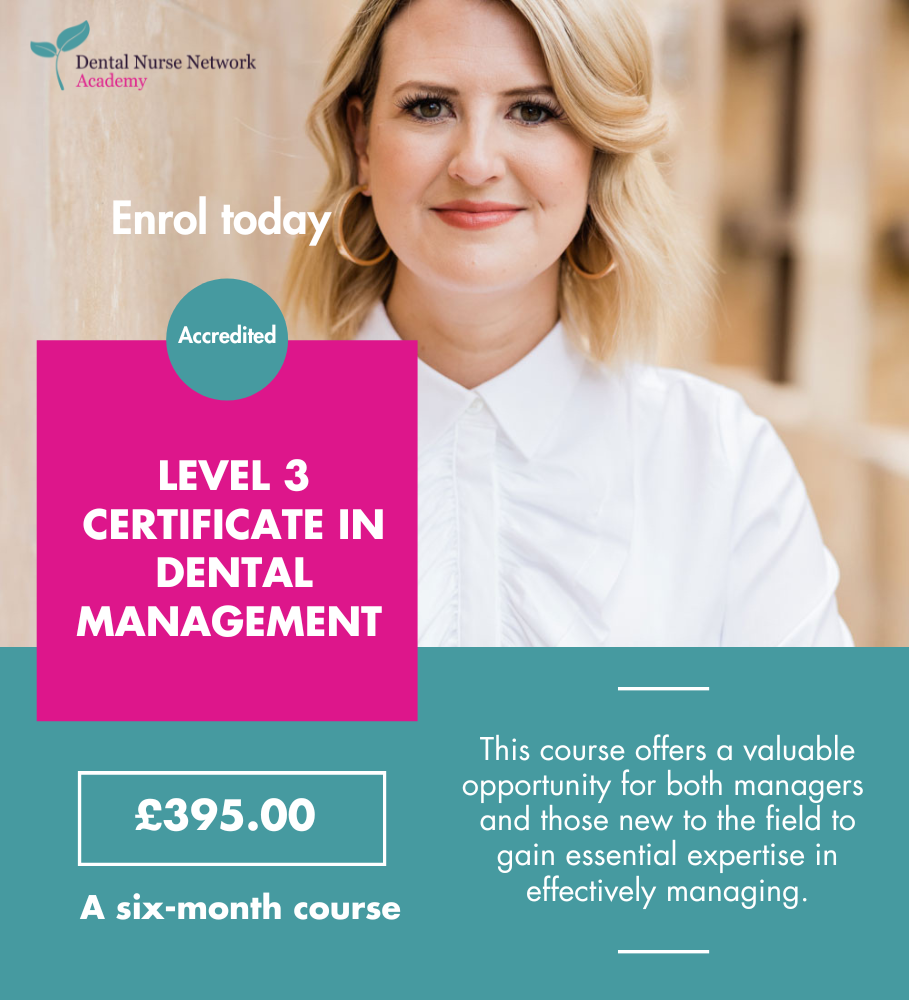 As dental professionals, we’re often the first to spot the signs of sugar creeping into children’s diets. Early enamel erosion, tiny carious lesions in first molars, and parents genuinely confused as to how it’s happened when they’re “doing everything right”.
As dental professionals, we’re often the first to spot the signs of sugar creeping into children’s diets. Early enamel erosion, tiny carious lesions in first molars, and parents genuinely confused as to how it’s happened when they’re “doing everything right”.
But what if they’re not being given the right information to begin with?
Following a new independent market analysis of baby foods sold in the UK, the British Dental Association (BDA) has issued a public response, calling out what it describes as “grotesque levels of sugar” in products aimed at children under 12 months. In their words, “The baby food industry is out of control.”
The analysis reviewed 209 products and found that more than a quarter had a higher sugar content per 100g than Coca-Cola. Some pouches contained up to 184 percent of the sugar found in the soft drink and were marketed to infants as young as four months old.
One product identified in the BDA’s findings contained over 4 teaspoons of sugar per 100g, significantly more sugar than Coca-Cola, which contains around 2.6 teaspoons per 100ml. While branding may promote such pouches as organic or suitable for young babies, the sugar load tells a very different story. Download the BDAs data sheet here. To make sugar content easier to visualise, one teaspoon equals 4 grams of sugar.
Why teaspoons matter
Part of the problem is that most people don’t easily visualise sugar when it’s listed in grams. Telling someone a baby pouch contains 19.5 grams of sugar doesn’t always register—but saying it contains nearly 5 teaspoons, or around 5 sugar cubes, often makes the impact clear.
We want to encourage dental teams, parents and anyone using social media to convert sugar grams into teaspoons or cubes when sharing or explaining information. It’s a simple but powerful way to help others picture how much sugar is really in a product.
To make sugar content easier to visualise, one teaspoon or one sugar cube is equal to approximately 4 grams of sugar.
According to the NHS, there is no recommended daily limit for free sugars for babies under 12 months. However, sugars should not be added to food or drinks given to babies, and both the amount and frequency should be kept as low as possible.
From age 1, the NHS advises the following maximum daily amounts of free sugar:
- Age 1 year: no more than 10 grams (2.5 teaspoons or cubes)
- Age 2 to 3 years: no more than 14 grams (3.5 teaspoons or cubes)
- Age 4 to 6 years: no more than 19 grams (5 teaspoons or cubes)
- Age 7 to 10 years: no more than 24 grams (6 teaspoons or cubes)
- Age 11 and over: no more than 30 grams (7 teaspoons or cubes)
The Health Halo Problem
The problem isn’t just the sugar. It’s the marketing.
Words like “organic”, “no added sugar”, “one of your five a day”, and “nutritionist approved” create a false sense of security for time-pressed parents just trying to do their best. Many of these products are positioned as healthy when, in reality, they’re high in free sugars, heavily processed, and consumed in a way that increases the risk of developing teeth.
Despite some companies now changing their labelling to align with NHS guidance on marketing, the BDA warns this doesn’t go far enough. The sugar levels remain, and so do the misleading health claims.
This Goes Beyond Baby Pouches
These findings highlight a broader issue, the health halo effect. As dental professionals, we regularly encounter parents who believe they’re making healthy choices because of how something is marketed.
No added sugar snacks are often high in naturally occurring sugars that behave just like added sugars when it comes to tooth decay. Pureeing or processing fruit removes fibre, concentrates sugars, and increases their availability, raising the risk of dental decay and potentially impacting blood sugar regulation.
Even "all fruit" snack bars or pouches, though technically free from added sugar, still count as free sugars once the cell walls of the fruit are broken down.
We Know the Real Impact and the Real Opportunity
As dental nurses and professionals, we’re in a powerful position. We’re trusted by patients. We have regular contact with families. We hear what parents are feeding their children, and we often see the damage long before anyone else.
Many of us know someone, maybe even a close friend or family member, who relied almost exclusively on baby pouches, genuinely believing they were giving their child the best. One mum I know fed her child pouches nearly every meal, thinking the fruity vegetable blends were packed with nutrients. She trusted the label, the branding, and the “organic” stamp. But she had no idea her baby was getting a steady stream of sugar with almost no texture exposure or nutritional balance.
So What Can We Do?
- Educate parents on the sugar content of baby pouches, even those without “added” sugar.
- Encourage whole food weaning using soft vegetables and mashed foods.
- Highlight the importance of texture, chewing, and sensory variety, not just taste.
- Direct parents to trustworthy resources, including the BDA’s response and petition.
- Challenge misleading marketing in everyday conversations. Labels can mislead.
Final Thought
Organic doesn’t always mean healthy. Not all fruit-based products are tooth friendly, especially when pureed, processed or served in pouch form.
We all know parents. Let’s make sure they know the truth. See our call for dental nurses to get involved in spreading awareness [here].
References
British Dental Association (BDA). (2025) Sugarier than Coke: Dentists press for government action on baby food. [online] Available at: https://www.bda.org/media-centre/sugarier-than-coke-dentists-press-for-government-action-on-baby-food/ [Accessed 2 May 2025].
Dentistry.co.uk. (2025) ‘More sugary than Coca-Cola’: dentists call for baby food action, 28 April. [online] Available at: https://dentistry.co.uk/2025/04/28/more-sugary-than-coca-cola-dentists-call-for-baby-food-action/ [Accessed 2 May 2025].
NHS. (2024) How does sugar in our diet affect our health? [online] Available at: https://www.nhs.uk/live-well/eat-well/food-types/how-does-sugar-in-our-diet-affect-our-health/ [Accessed 2 May 2025].

